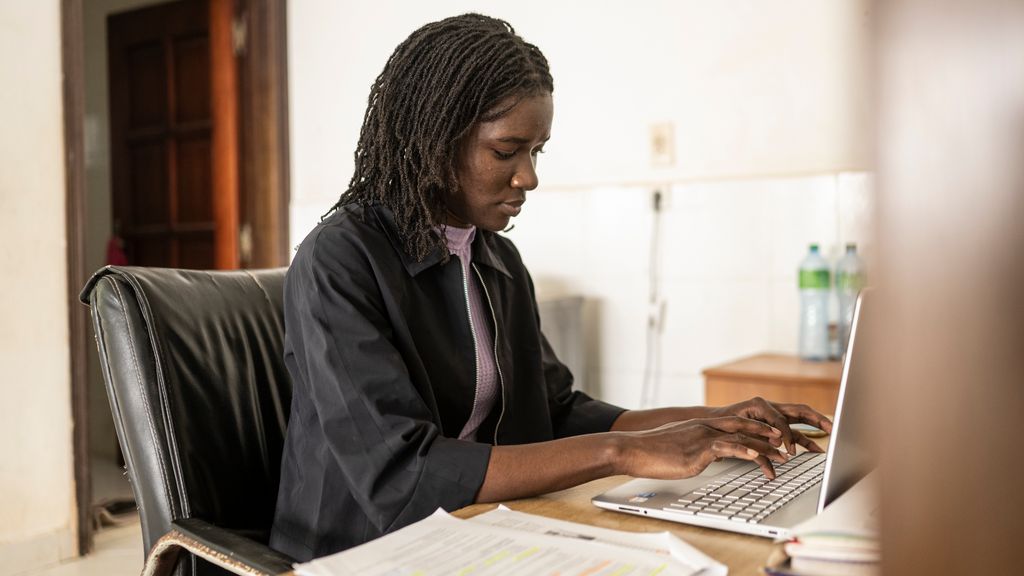You have successfully logged out.
Not registered yet?
Partner in Cameroon
Chronic kidney disease care infrastructure
In many West African countries, some illnesses cannot be treated ideally. In Cameroon, B. Braun is helping build the infrastructure to care for patients with chronic kidney disease. One of these patients is Ngueochi Tamba Maurelle.

This makes experts like Alice Blanche Maghue even more essential. She comes from the west of the country. She has been working as a dialysis trainer for seven years and trains nurses at the hospital on the dialysis machines: “The training is very important because if the nurses are not well trained, the treatments cannot be done properly.” During the training, she shows the nurses how to enter patient data into the dialysis machine, how to start the machine and how to connect it to the patient. She says the technical training is the most important part of the program.

“We need more trained nurses here, more training and more renal care centers.”
B. Braun has provided ten dialysis machines, there are 32 at the hospital in Douala. “The general hospital in Douala is the largest dialysis center in the region,” said Prof. Henry Luma, who runs the hospital. 20-year-old Maurelle is fortunate to regularly receive her dialysis at the hospital in Douala. This is her story:
My father works in rubber production and my mother is a housekeeper. I’m the fifth of six children; in addition to their own children, my parents care for my third-oldest sister’s two children.
My nightmare began when I was nine years old. One night, I had trouble breathing. My mother wasn't in town, so my big sister, who slept in the same room, called my father. He asked me what was wrong and how I was feeling. “Just try to breathe,” he said. At some point, I fell back asleep. The next morning, we noticed that my hands, face and feet were swollen. The next night, I couldn't breathe again, it was even worse than the night before. It was terrible. At three in the morning, my father decided to drive me to the local hospital the next day.
Dialysis patients in Cameroon1
-
0
dialysis patients are treated regularly at the hospital in Douala.
-
0
dialysis patients are treated regularly in all of Cameroon.
-
0
patients in Cameroon need dialysis treatment.
At the hospital, they wanted to test my urine, but I couldn’t give them any. My body kept swelling up, and my skin turned pale. They suspected I had anemia and gave me transfusions. That night, I fell into a coma. The doctors in Niete were worried I was going to die and sent me to Douala General Hospital, where we arrived at one in the morning.
When I woke up two weeks later, they told us I had chronic kidney disease. They then placed a catheter in me for my first dialysis to clean my kidneys. I stayed at the hospital for seven months before the doctors advised us to find a place to stay close to the hospital.
We decided to rent a room across from the hospital so I can go to dialysis twice a week. There’s no dialysis center where we're from, in Niete, so my mother and I had to stay in the city. Three years after my diagnosis, I was able to go back to primary school while still getting my dialysis. Today, I attend a high school and I’m going to graduate in four years.
Related topic
Discover other related stories
[1] Aseneh, J.B., Kemah, BL.A., Mabouna, S. et al. Chronic kidney disease in Cameroon: a scoping review. BMC Nephrol 21, 409 (2020). https://doi.org/10.1186/s12882-020-02072-5.
Stay connected with My B. Braun
With your personalized account, your online experience will be easier, more comfortable and safe.



